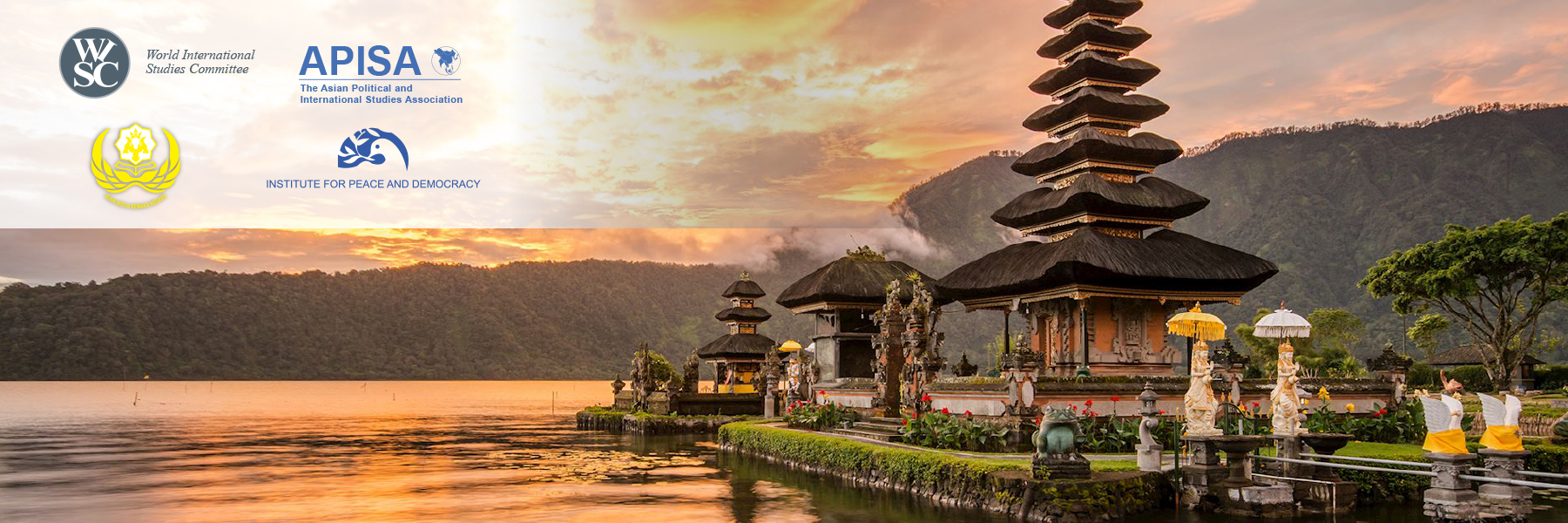
APISA 17th Annual Congress
Institute of Peace and Democracy and Warmadewa University, Bali, Indonesia
Co-sponsored by the Rosenberg Institute and the World International Studies Committee
🗓️ June 30, 2023
International Studies in Asia
The goal of this roundtable is to map and discuss the practices of International Relations communities in several countries in Southeast Asia. Building national IR communities of scholars and practitioners studying global problems contributes to understanding and suggesting policies that impact local communities and local challenges that disrupt global and regional orders. The discussion seeks to bring some light and compare three areas of analysis. a) the production of multiple discourses, theories, and methods in the IR national traditions; b) the uploading and downloading of global discourses and the synergy and collision with national practices; and c) how IR national and global understandings influence the practice of international relations.
This panel is sponsored by the World International Studies Committee (WISC) and The Rosenberg Institute for Asian Studies at Suffolk University.
Presenters:
- Roberto Dominguez, Suffolk University, United States (Chair)
- Nguyễn Phương Ly, Diplomatic Academy of Vietnam, Vietnam
- Pou Sothirak, Cambodian Center for Cooperation and Peace, Cambodia
- Cheng-Chwee Kuik, National University of Malaysia, Malaysia
- Paul Chambers, Naresuan University, Thailand
- Tirta Nugraha Mursitama, Bina Nusantara University, Indonesia
ASEAN Varieties of Liberalism and Democracy
The liberal and democratic recessions in the past decade have brought up multiple questions regarding the viability of a broad understanding of how political systems act within their borders and engage with the global order. The rise of populism in numerous corners of the world is a symptom of problems within democracies and the stagnation of political and economic liberalization in countries on the path to democracy. As a general trend and with some exceptions, Asian and Southeast Asian countries have engaged selectively in the policies and practices of liberalism. At the same time, the development of democracy has remained more limited than in other regions. This panel continues the discussion about the variety of political and economic liberalism by exploring the complexity of a) authoritarian regimes embracing some economic liberal policies, b) incipient democracies implementing globalizing economic practices, and c) democracies with significant state intervention in the economy.
This panel is sponsored by the World International Studies Committee (WISC) and The Rosenberg Institute for Asian Studies at Suffolk University.
Presenters:
- Roberto Dominguez, Suffolk University, United States (Chair)
- Brendan Howe, Ewha Womans University, South Korea
- Haruko Satoh, Osaka University, Japan
- Christian Schafferer, Overseas Chinese University, Taiwan
- Julio Teehankee, De La Salle University, Philippines

